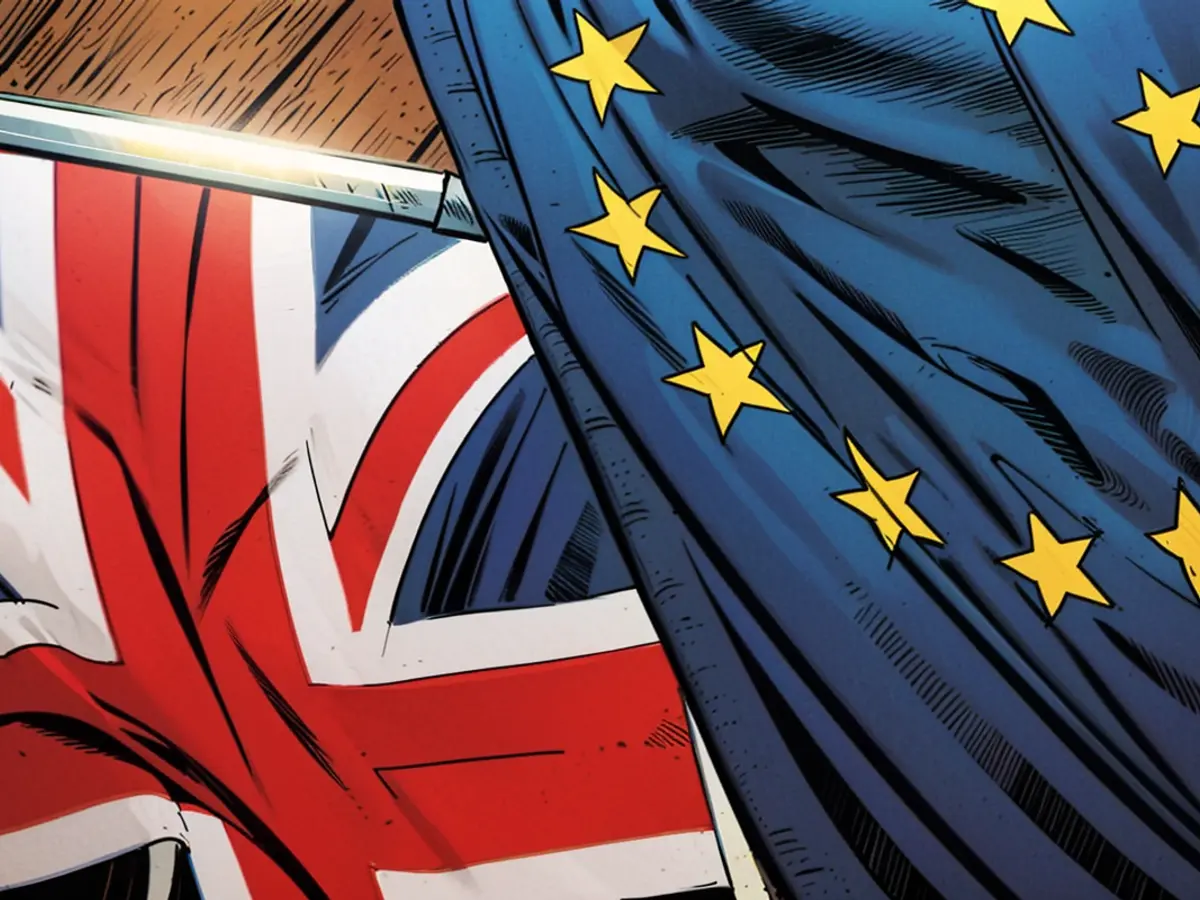Britain grappled increasingly with the challenges posed by Brexit.
As per a recent research, the United Kingdom's trade relations with the European Union have been facing challenges post-Brexit. Data from Aston University in Birmingham indicates a substantial drop in imports and exports over the years 2021 to 2023. The UK's exports to the EU decreased by 27%, while imports plummeted by 32%.
The variety of UK exported goods has also seen a decline. There were 1,645 fewer distinctive British items exported to each EU nation. This impacted smaller EU economies such as Germany less, however.
The research overlooks the services sector, which has surprisingly thrived after Brexit. Exports of tobacco, railways, and aircraft goods have also showed an uptick.
The UK officially exited the EU at the end of January 2020 and has not been a part of its customs union and single market since 2021. A last-minute agreed upon free trade agreement could not completely eliminate the persistent bureaucratic challenges and other trade barriers.
The most severely impacted sectors, according to the study, are agriculture, clothing, and wood and paper production. The category of edible fruits and nuts experienced the largest export decline, with a value decrease of about 73.5%.
The EU, being a significant trading partner for the UK, has been affected by the challenges in trade relations following Brexit. Despite the challenges, the UK has managed to increase exports in certain sectors, such as tobacco, railways, and aircraft goods, to the EU.








